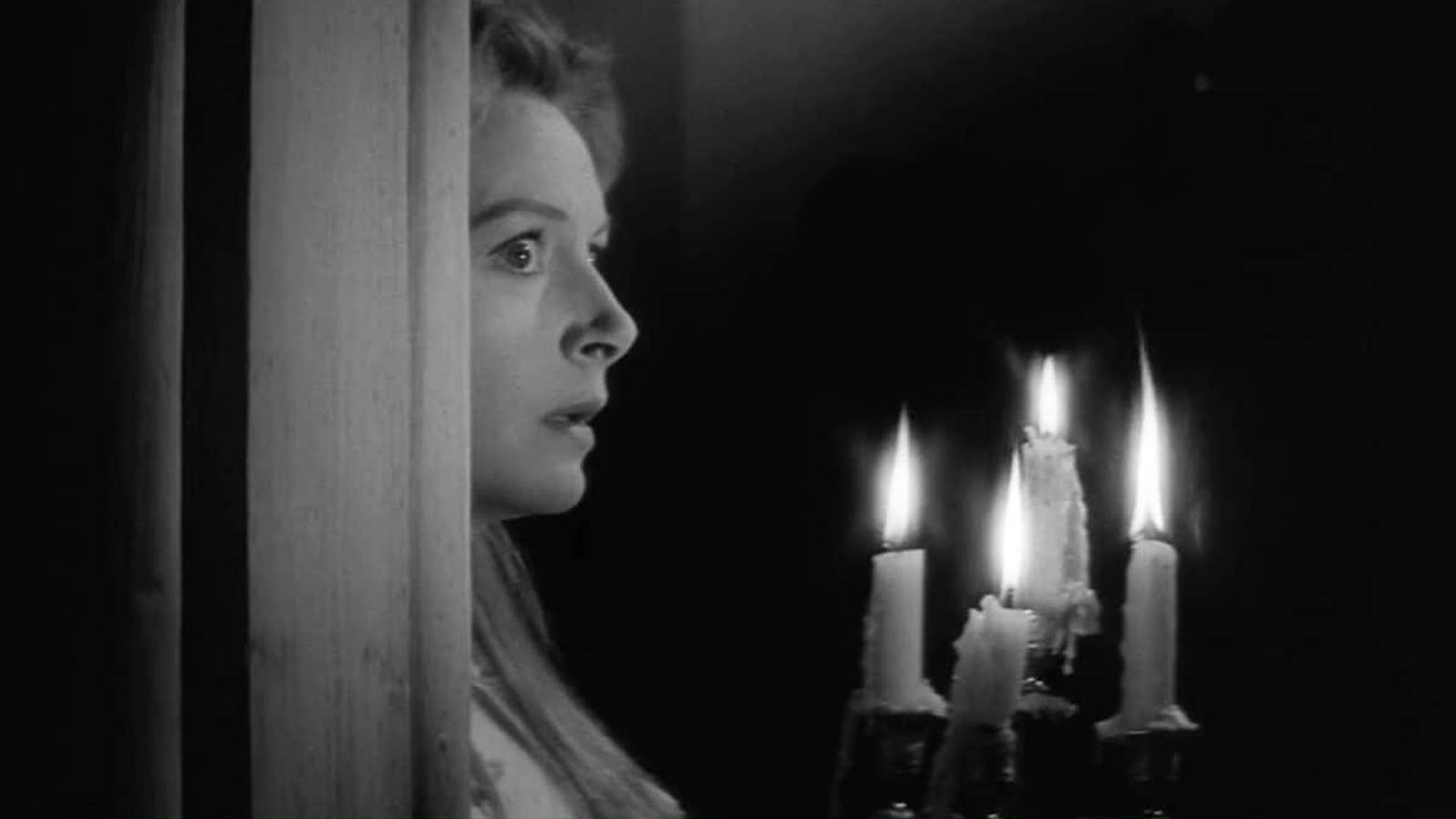
Jack Clayton’s masterpiece of narrative ambiguity The Innocents begins with a time-honored tableau: Deborah Kerr, hands clasped devoutly, imploring a higher power to make her useful to her young wards (“more than anything, I love children”). Kerr played her share of nuns (Black Narcissus; Heaven Knows, Mr. Allison) and governesses (The King and I, The Chalk Garden), so this opening sequence would seem to forecast something familiar and reassuring. But each word of her prayer (or is it a confession?) defamiliarizes the actress, whose forehead gleams with perspiration as she cowers on the periphery of the wide CinemaScope frame. “All I want to do is save the children—not destroy them,” she asserts emphatically, and we begin to wonder if she might pose a greater threat to her charges than whatever menaces them in her mind.
Sheltered parson’s daughter Miss Giddens (Kerr) is entrusted with the care of young, orphaned Flora (charming Pamela Franklin) and her brother Miles (Martin Stephens, as coldly precocious as he was in Village of the Damned). Granted carte blanche by their indifferent uncle (Michael Redgrave in a resonant cameo), Miss Giddens installs herself in their baronial country estate, but soon begins to suspect the property is haunted by the specters of the prior governess and the brutal valet, who engaged in a torrid and likely abusive affair before their mysterious deaths. As Miss Giddens senses (and ostensibly sights) the pair of ghostly manifestations, she becomes convinced that these malign spirits are trying to influence the children—to what end is unclear, but Miles suddenly wields the manipulative charm for which Quint the valet was known and feared.
What The Innocents boldly leaves us to interpret is whether we’re witnessing a genuine haunting or simply the projections of Miss Giddens’s repressed and paranoid imagination. Dissatisfied with playwright William Archibald’s straightforward ghost-story rendition of the source novella, Henry James’s The Turn of the Screw, Clayton brought in Truman Capote to add psychological depth and childhood insight, and it’s these two qualities that make the film unique. No dramatist was ever more attuned to preadolescent anxieties than the author of “A Christmas Memory,” and here he rekindles forgotten-yet-familiar worries (like Flora’s reluctance to sleep alone because she thinks the rooms of the manor expand at night), while credibly limning the traumatized state of children whose young lives have been dappled with unnatural death.
In Miss Giddens, the three writers, Clayton, and Kerr unite to create as complex a protagonist as the genre has ever seen. Unable to experience either the siblings’ world of youthful fantasy or the late servants’ consuming passion, the desperately well-intended caregiver grows obsessed with protecting her dependents’ innocence, even if it means harming them irreparably. It’s a tribute to Kerr’s clear-sighted acting that we’re unsure whether her character is exorcising the children or merely torturing them; barring the prologue, Miss Giddens never experiences a moment of self-doubt, which is both superficially comforting and more unnerving than any poltergeist.
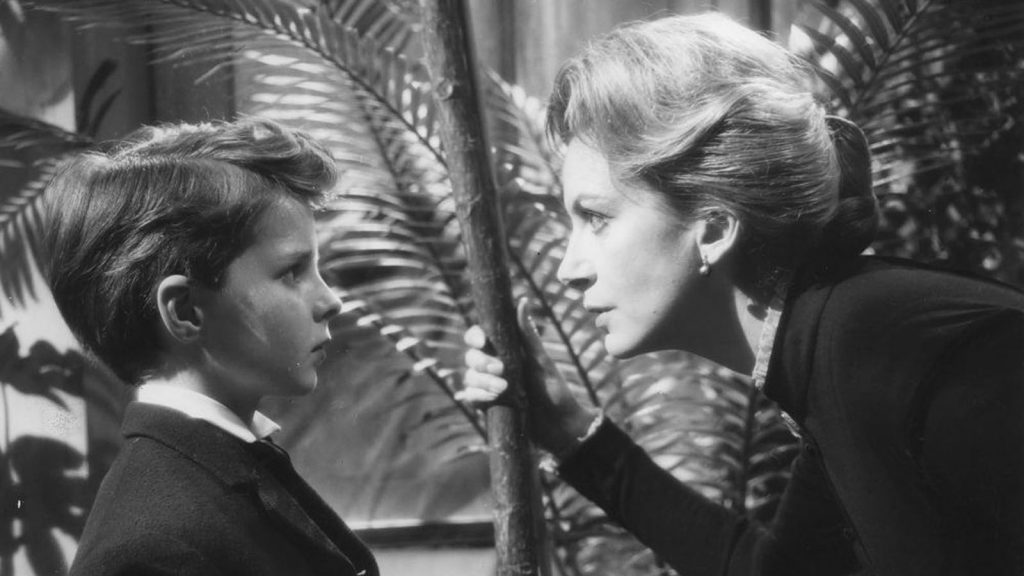
is the copy editor for Field of Vision’s online journal Field Notes and for Film Comment magazine, as well as a frequent contributor to Film Comment, Metrograph’s Journal, and other publications. He wrote a thesis on depictions of old age in American cinema.
As The Innocents opens, a family of four are in the car headed to a new home. In the back seat sit two sisters: the lightly freckled Ida (Rakel Lenora Fløttum), her intense stare much older than her 9 years, pinches her older, nonspeaking autistic sister, Anna (Alva Brynsmo Ramstad).
BY LAURA KERN | May 13, 2022
The camera floats just a little behind and a little above the figure of a man running through Central Park. In this, Birth’s overture, we seem to observe the running man from the perspective of Death itself—a force as calm, steady, and inescapable as the pale-faced harbinger...
BY JOSÉ TEODORO | October 31, 2022
When Bette Davis as Jane served Joan Crawford’s Blanche her pet bird for “din-din,” a new strain of horror was born. Either “Grande Dame Guignol” or “psycho-biddy cinema,” depending on your degree of reverence...
BY STEVEN MEARS | April 19, 2022
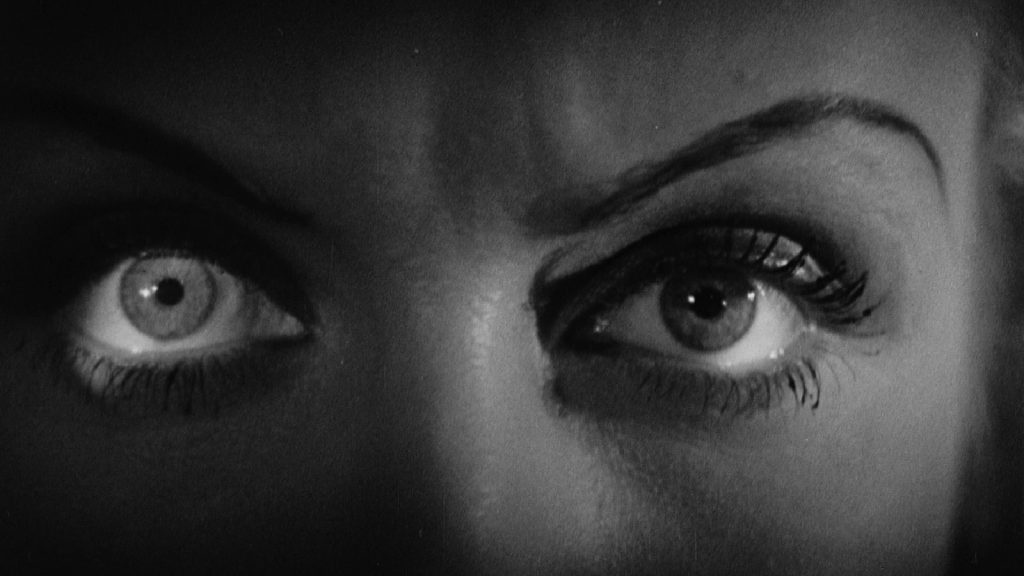
This pre-Code offering packs a lot of story into its typically brisk running time, with several plot threads weaving together a (not always successful) tapestry of spooky and criminal doings.
READ MORE >
BY ANN OLSSON | Month 00, 2021
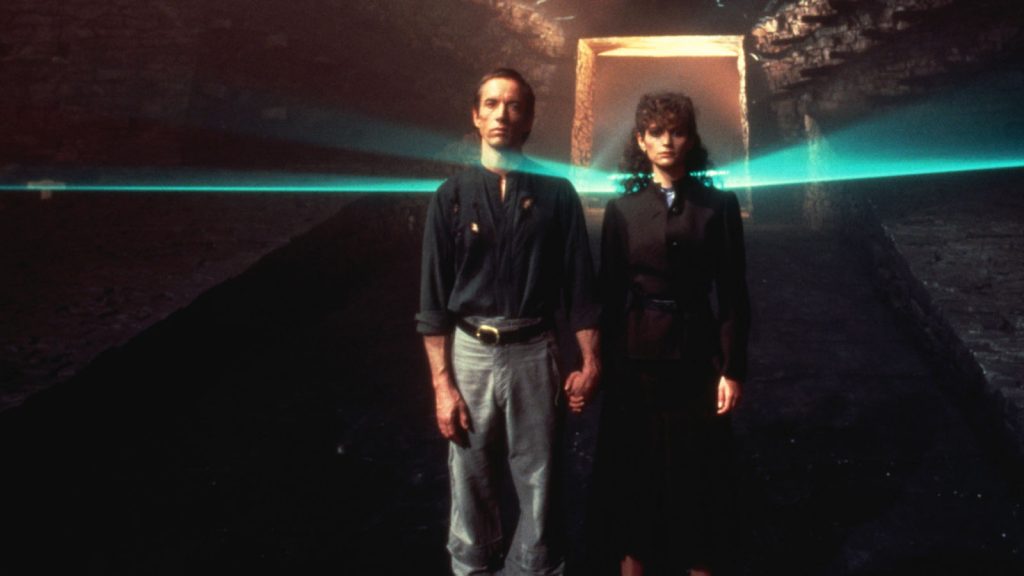
In what could be the fastest-resulting rape revenge movie, a drunken lout brutally forces himself on Ida, the young woman who doesn't return his affections, during a party over Labor Day.
READ MORE >
BY LAURA KERN | Month 00, 2021
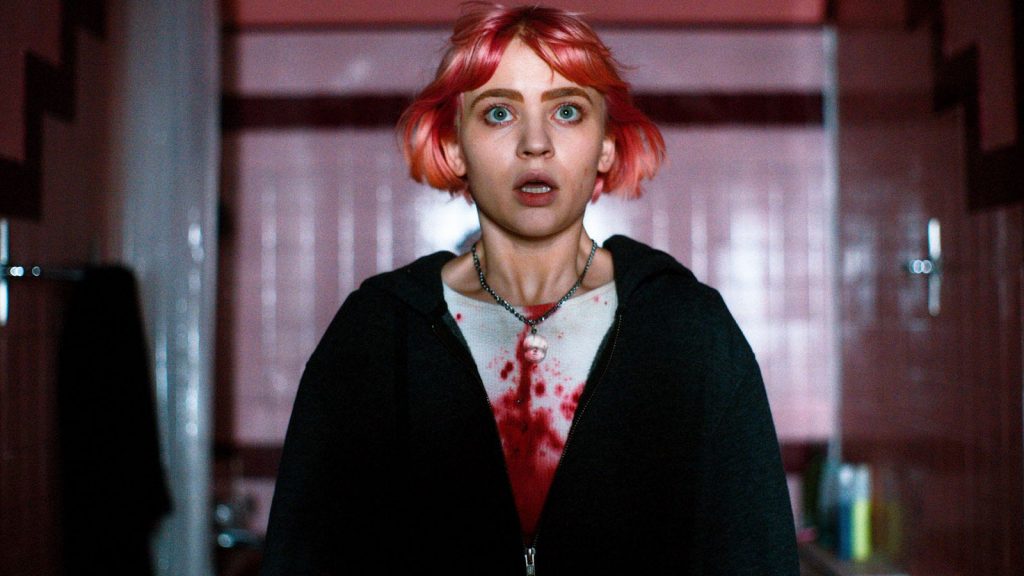
Beast is a lot of movies in one package - fractured fairy tale, belated-coming-of-age story, psychological drama, regional horror film - but above all it's a calling card for its leading lady, Jessie Buckley.
READ MORE >
BY LAURA KERN | Month 00, 2021